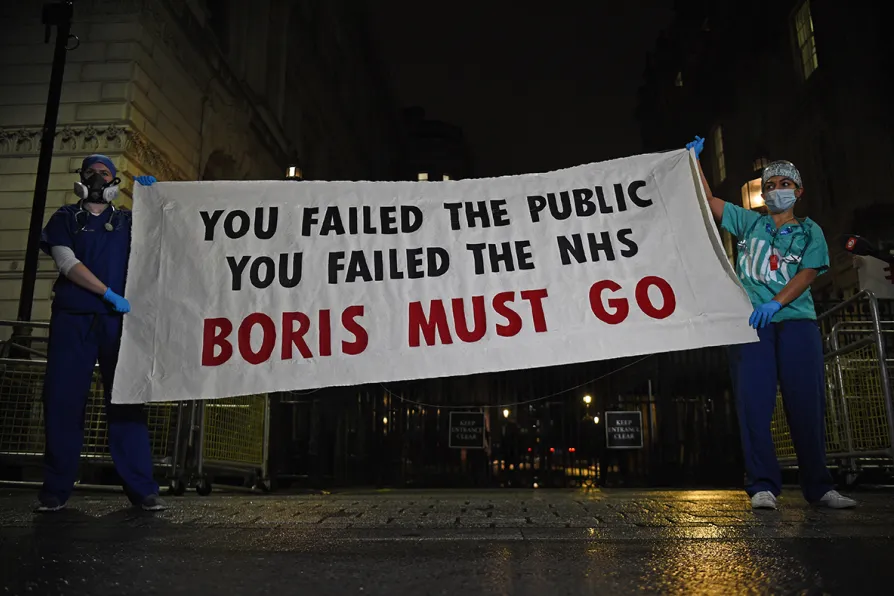The Carpathia isn’t coming to rescue this government still swimming in the mire, writes LINDA PENTZ GUNTER
NHS staff deserve much better
The government’s shoddy treatment of heroic health workers is disgraceful – and trade unionists will be fighting hard to ensure their vital work is fairly rewarded, says HELEN O’CONNOR

 NHS workers from hospitals across the capital during a socially distanced protest outside Downing Street, London, in January 2021
NHS workers from hospitals across the capital during a socially distanced protest outside Downing Street, London, in January 2021
NHS workers have been failed at all levels since the outset of this pandemic.
One year on and NHS staff are still struggling to get the high-quality PPE that will prevent them getting very sick or even dying from this virus.
The stop-start lockdown strategy has led to NHS staff working around the clock to treat a massive influx of seriously ill patients as they patch up an NHS service that is breaking apart at the seams due to a chronic and persistent recruitment crisis and unprecedented levels of staff sickness.
Similar stories

Labour warned that workers expect better as anger mounts over welfare cuts and public-sector pay













